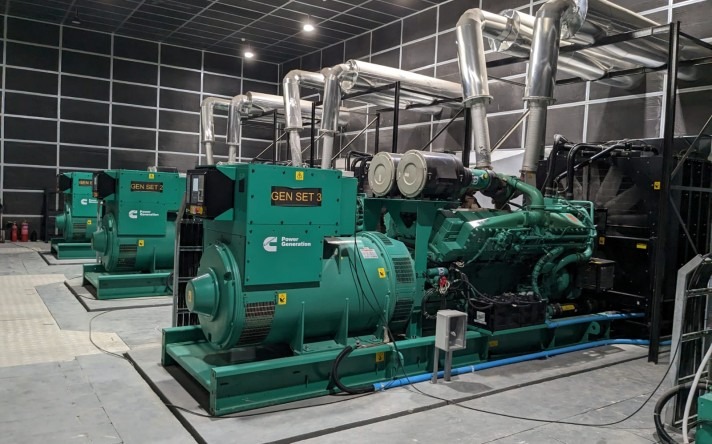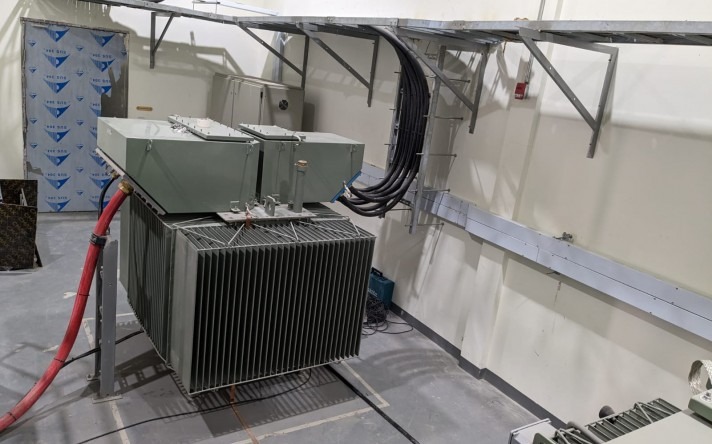The MEP (Mechanical, Electrical, and Plumbing) industry stands at the forefront of constructing functional, efficient, and sustainable buildings. Among its pivotal pillars, Electrical Services reign supreme, driving innovation, safety, and energy efficiency within the built environment.
Defining Electrical Services in MEP:
Electrical services encompass a spectrum of critical elements crucial for the design, installation, and maintenance of electrical systems within buildings. These systems ensure the smooth flow and utilization of electricity throughout the structure, ranging from power distribution to lighting, safety systems, and more.
Key Components of Electrical Services in MEP Projects:
Power Distribution Systems: These systems manage the flow of electricity from the main supply to various outlets within the building, ensuring safe and efficient distribution.
Lighting Design and Fixtures: Electrical engineers meticulously plan lighting layouts, incorporating energy-efficient fixtures and technologies to provide adequate illumination while minimizing energy consumption.
Wiring and Cabling: Designing a robust wiring infrastructure that meets safety standards and efficiently carries electricity throughout the building is crucial for seamless electrical functionality.
Electrical Panels and Switchgear: These components serve as control centers, managing the distribution of electricity, protecting circuits, and providing backup power when needed.
Emergency and Backup Power Systems: In case of power outages, backup systems like generators or uninterruptible power supply (UPS) units ensure essential functions remain operational.
Grounding and Bonding Systems: Critical for safety, these systems safeguard against electrical faults by providing paths for excess electrical current to dissipate harmlessly.


Role in Building Safety and Energy Efficiency:
Electrical Services are vital for building safety, adhering to stringent codes and regulations, ensuring proper grounding, and implementing safety devices to prevent electrical hazards and fires.
Additionally, Electrical engineers contribute significantly to energy efficiency. They design lighting systems employing advanced technologies like LEDs and incorporate smart solutions such as occupancy sensors and daylight harvesting to minimize energy consumption.
Challenges and Future Directions:
Common challenges in Electrical Services include navigating complex wiring layouts, ensuring system reliability, and staying abreast of evolving codes and technologies. Future advancements revolve around smart grid technologies, energy storage solutions, IoT-enabled devices, and integrating renewable energy sources into electrical grids for more sustainable and efficient buildings.
Maintenance Post-Construction:
Regular maintenance is paramount for Electrical Services to ensure system integrity, safety, and longevity. Routine inspections, testing, and servicing prevent failures and guarantee the continued efficiency of electrical components.
In conclusion, Electrical Services within the MEP industry are indispensable for creating safe, functional, and energy-efficient buildings. They continue to evolve in tandem with technological advancements, contributing significantly to the ever-changing landscape of construction, promising smarter, more sustainable, and safer buildings for the future.
What does Electrical services encompass in the MEP industry?
Electrical services in MEP involve the design, installation, and maintenance of electrical systems within buildings. This includes power distribution, lighting, wiring, electrical panels, switches, sockets, and compliance with safety standards and regulations.
What are the key components of Electrical services in MEP projects?
Key components include:
- Power distribution systems
- Lighting design and fixtures
- Wiring and cabling
- Electrical panels and switchgear
- Emergency and backup power systems
- Grounding and bonding systems
How do Electrical services integrate with other MEP disciplines?
Electrical services require close coordination with Mechanical and Plumbing services to ensure efficient space allocation, avoid clashes between systems, and optimize installation. Coordination is essential to avoid interference and streamline the installation process.
What role do Electrical services play in ensuring building safety?
Electrical services are crucial for ensuring building safety. They involve compliance with electrical codes and regulations, proper grounding, installation of safety devices like circuit breakers, and the design of systems that minimize fire and electrical hazards.
How do Electrical engineers contribute to energy efficiency in MEP projects?
Electrical engineers focus on designing energy-efficient lighting systems, incorporating smart technologies like motion sensors and timers, implementing energy-saving devices, and integrating renewable energy sources like solar panels or wind turbines into the building’s electrical grid.
What challenges are commonly faced in Electrical services during MEP projects?
Challenges often revolve around load calculations, ensuring electrical system reliability, complying with evolving codes and standards, managing complex wiring layouts, and integrating new technologies without disrupting existing systems.
How critical is Electrical system maintenance post-construction?
Maintenance is crucial to ensure the proper functioning of electrical systems post-construction. Regular inspections, testing, and servicing help identify issues, prevent electrical failures, ensure safety, and prolong the lifespan of electrical components.
What advancements are shaping the future of Electrical services in MEP?
Advancements such as smart grid technology, energy storage solutions, IoT-enabled devices, and the integration of renewable energy sources are driving innovation in Electrical services, paving the way for more efficient, sustainable, and technologically advanced building systems.
